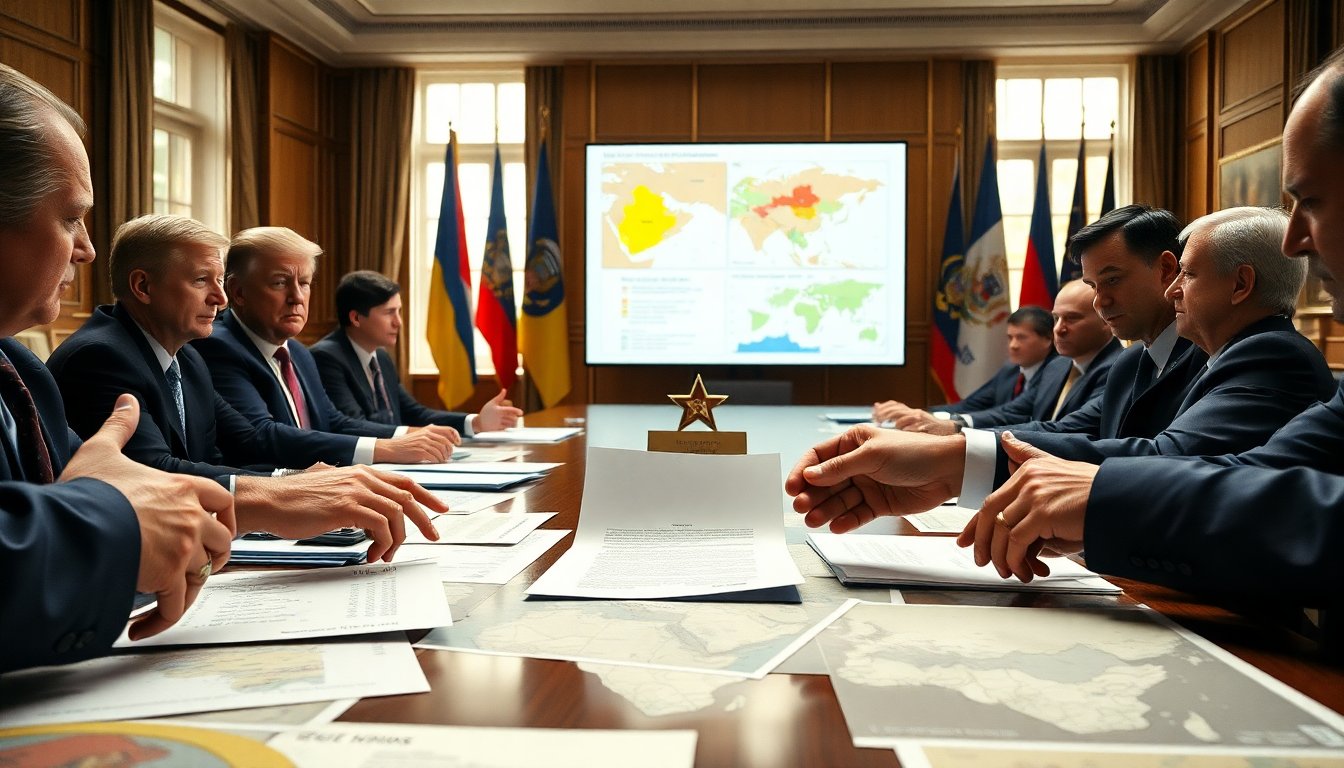Table of Contents
Following a notable diplomatic breakthrough in the Middle East, former President Donald Trump is shifting his focus to stabilizing Ukraine. Recent negotiations aimed at easing tensions in Gaza have showcased the effectiveness of strategic pressure. However, the ongoing situation with Russia requires urgent attention, especially as President Volodymyr Zelensky prepares for his forthcoming visit to the White House.
Middle East victories and their implications
The recent progress in the Middle East, particularly regarding Hamas and Gaza, is considered a significant moment for Trump. His administration’s capacity to apply pressure on militant groups has led not only to a temporary ceasefire but also positioned the former president as a prominent figure in international diplomacy. This achievement has initiated discussions on how similar tactics could be applied to confront the ongoing conflict in Ukraine.
Learning from Gaza: The need for strategic pressure
Donald Trump’s approach in the Middle East illustrates the potential effectiveness of employing political pressure to achieve favorable outcomes. By utilizing diplomatic channels and international alliances, the former president created an environment conducive to peace talks. This raises the question of whether a similar framework could be established to influence Russia’s actions in Ukraine.
As Ukrainian President Volodymyr Zelensky prepares to meet Trump, the urgency for a comprehensive strategy to counter Russian aggression is apparent. The lessons learned from negotiations in Gaza could provide a valuable blueprint for navigating the complexities of the ongoing Ukrainian crisis.
The impending visit of President Zelensky
President Zelensky’s visit to the United States is generating significant interest, as it presents a vital opportunity for Ukraine to secure support and enhance bilateral relations. This visit comes at a time when former President Trump has shown renewed interest in Ukrainian issues, prompting speculation about the potential outcomes of their discussions.
Forging alliances against Russian aggression
The ongoing threat from Russia underscores the necessity of a unified global response. Zelensky’s government has actively sought international backing to strengthen its defenses and counteract the persistent conflict. Trump’s previous experience in international negotiations may prove valuable in elevating Ukraine’s standing on the global stage.
The ability to draw parallels between the situations in Gaza and Ukraine may enhance efforts to mobilize resources and gain international support. Donald Trump’s previous experience in navigating complex political landscapes provides a distinct perspective on managing these negotiations.
The challenge of applying pressure on Russia
Despite positive developments in the Middle East, Trump has not fully applied pressure on Russia concerning its involvement in the Ukrainian conflict. Critics contend that without a determined effort to hold Russia accountable, the likelihood of achieving lasting peace in Ukraine is diminished. The forthcoming discussions with Ukrainian President Volodymyr Zelensky present an opportunity for Trump to present a clear strategy to tackle these issues.
Establishing a framework for peace
For a successful outcome, Donald Trump and Volodymyr Zelensky must work together to develop a comprehensive framework addressing both immediate and long-term concerns. This includes not only engaging diplomatically with Russia but also strengthening alliances with nations invested in stabilizing Ukraine.
The negotiation process for peace in Ukraine is likely to be complex, requiring careful consideration of various geopolitical factors. The effective use of diplomatic pressure in the Middle East highlights that diplomacy can yield tangible results.
As Donald Trump shifts his focus towards Ukraine after recent successes in the Middle East, the stakes are notably high. President Zelensky’s upcoming visit marks a pivotal moment for both leaders. This meeting holds the potential to create pathways toward peace in a region historically affected by conflict. By leveraging strategic alliances and applying measured pressure, opportunities for a resolution that could significantly impact Ukraine’s future may emerge.


